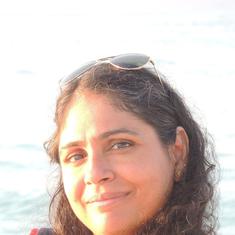Meaningful changes have always been driven by the right, but inconvenient questions. As India completes 70 years of its sovereign journey, we could do two things – celebrate, pay our token tributes and move on, or take the time to reflect and assess if our course needs correction. The ‘India @ 70: LSE India Summit’, the annual flagship summit of the LSE (London School of Economics) South Asia Centre, is posing some fundamental but complex questions that define our future direction as a nation. Through an honest debate – built on new research, applied knowledge and ground realities – with an eclectic mix of thought leaders and industry stalwarts, this summit hopes to create a thought-provoking discourse.
From how relevant (or irrelevant) is our constitutional framework, to how we can beat the global one-upmanship games, from how sincere are business houses in their social responsibility endeavours to why water is so crucial to our very existence as a strong nation, these are some crucial questions that the event will throw up and face head-on, even as it commemorates the 70th anniversary of India’s independence.
Is it time to re-look at constitution and citizenship in India?
The Constitution of India is fundamental to the country’s identity as a democratic power. But notwithstanding its historical authority, is it perhaps time to examine its relevance? The Constitution was drafted at a time when independent India was still a young entity. So granting overwhelming powers to the government may have helped during the early years. But in the current times, they may prove to be more discriminatory than egalitarian. Our constitution borrowed laws from other countries and continues to retain them, while the origin countries have updated them since then. So, do we need a complete overhaul of the constitution? An expert panel led by Dr Mukulika Banerjee of LSE, including political and economic commentator S Gurumurthy, Madhav Khosla of Columbia University, Niraja Gopal Jayal of JNU, Chintan Chandrachud the author of the book Balanced Constitutionalism and sociologist, legal researcher and Director of Council for Social Development Kalpana Kannabiran will seek answers to this.
Is CSR simply forced philanthropy?
While India pioneered the mandatory minimum CSR spend, has it succeeded in driving impact? Corporate social responsibility has many dynamics at play. Are CSR initiatives mere tokenism for compliance? Despite government guidelines and directives, are CSR activities well-thought out initiatives, which are monitored and measured for impact? The CSR stipulations have also spawned the proliferation of ambiguous NGOs. The session, ‘Does forced philanthropy work – CSR in India?” will raise these questions of intent, ethics and integrity. It will be moderated by Professor Harry Barkema and have industry veterans such as Mukund Rajan (Chairman, Tata Council for Community Initiatives), Onkar S Kanwar (Chairman and CEO, Apollo Tyres), Anu Aga (former Chairman, Thermax) and Rahul Bajaj (Chairman, Bajaj Group) on the panel.

Can India punch above its weight to be considered on par with other super-powers?
At 70, can India mobilize its strengths and galvanize into the role of a serious power player on the global stage? The question is related to the whole new perception of India as a dominant power in South Asia rather than as a Third World country, enabled by our foreign policies, defense strategies and a buoyant economy. The country’s status abroad is key in its emergence as a heavyweight but the foreign service officers’ cadre no longer draws top talent. Is India equipped right for its aspirations? The ‘India Abroad: From Third World to Regional Power’ panel will explore India’s foreign policy with Ashley Tellis, Meera Shankar (Former Foreign Secretary), Kanwal Sibal (Former Foreign Secretary), Jayant Prasad and Rakesh Sood.
Are we under-estimating how critical water is in India’s race ahead?
At no other time has water as a natural resource assumed such a big significance. Studies estimate that by 2025 the country will become ‘water–stressed’. While water has been the bone of contention between states and controlling access to water, a source for political power, has water security received the due attention in economic policies and development plans? Relevant to the central issue of water security is also the issue of ‘virtual water’. Virtual water corresponds to the water content (used) in goods and services, bulk of which is in food grains. Through food grain exports, India is a large virtual net exporter of water. In 2014-15, just through export of rice, India exported 10 trillion litres of virtual water. With India’s water security looking grim, are we making the right economic choices? Acclaimed author and academic from the Institute of Economic Growth, Delhi, Amita Bavisar will moderate the session ‘Does India need virtual water?’
Delve into this rich confluence of ideas and more at the ‘India @ 70: LSE India Summit’, presented by Apollo Tyres in association with the British Council and organized by Teamworks Arts during March 29-31, 2017 at the India Habitat Centre, New Delhi. To catch ‘India @ 70’ live online, register here.
At the venue, you could also visit the Partition Museum. Dedicated to the memory of one of the most conflict-ridden chapters in our country’s history, the museum will exhibit a unique archive of rare photographs, letters, press reports and audio recordings from The Partition Museum, Amritsar.
This article was produced by the Scroll marketing team on behalf of Teamwork Arts and not by the Scroll editorial team.










